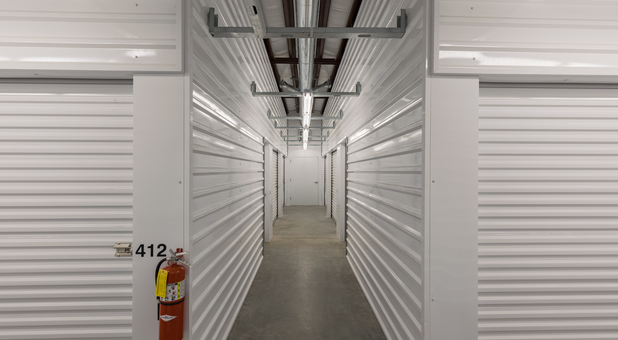What NOT to Put in a Storage Unit
Admin
August 27th, 2025

Hazardous, Risky, and Off-Limits Items Explained
Storage units aren’t dumpsters or bank vaults. They’re shared spaces designed to be secure, clean, and predictable. Rules exist to protect you, your neighbors, the property, and first responders. In almost every lease, you’ll find restrictions that come down to four big risks: fire/explosion, contamination, pests/odors, and theft/liability. If it leaks, spoils, burns, attracts critters, or could get someone hurt, it doesn’t belong in a unit.
The Definitive “Do Not Store” List
1) Flammables, Fuels, and Combustibles
Gasoline, diesel, propane tanks, butane, kerosene, lighter fluid, paint thinners, solvents, aerosol cans, and most camping stove fuel are off-limits. Vapors can ignite, containers can rupture, and even “empty” tanks can be dangerous.
Better option: Store fuels at home in approved containers per local code, return propane tanks to certified exchanges, or take them to your county’s Household Hazardous Waste (HHW) facility.
2) Explosives, Fireworks, and Ammunition
Anything designed to detonate or combust is a hard no. That includes fireworks and most ammunition.
Better option: Use a licensed firearms or sporting-goods facility for guidance, or store legally at home in approved containers as allowed by local law.
3) Toxic, Corrosive, or Reactive Chemicals
Acids, bleach in bulk, pool chemicals, pesticides, fertilizers, automotive fluids (coolant, brake fluid, motor oil), and industrial cleaners can leak, react, or off-gas.
Better option: Keep small, household quantities at home in labeled, upright containers; take surplus to an HHW site.
4) Pressurized or Hazardous Cylinders
Propane, oxygen, acetylene, CO₂ beverage cylinders, and scuba tanks are typically prohibited due to rupture and explosion risk.
Better option: Leave them with the supplier or store per manufacturer guidance at approved locations.
5) Perishables and Any Kind of Food
Canned goods, pet food, rice, flour, spices, and even sealed snacks can attract pests and create odors. “Just a few groceries” quickly become a pest problem.
Better option: Keep food at home; donate shelf-stable items to a local pantry if you’re between moves.
6) Living Things (and Things That Were Recently Alive)
No plants, no animals, no aquariums with water. Plants bring in bugs and mold; aquariums can leak.
Better option: Gift plants to a friend, use a plant-sitting service, or rehome before a long trip.
7) Wet, Scented, or Odor-Heavy Items
Damp clothing, recently cleaned rugs, used mops, or strong chemicals/paints cause mold and nuisance odors.
Better option: Dry everything 100% before packing. Use odor-neutral, sealed totes. Skip storing paints/solvents altogether.
8) Illegal, Stolen, or Contraband Items
If possession is unlawful, storage is unlawful. Full stop.
Better option: None—don’t store it.
9) Medical, Biological, or “Sharps” Waste
Unused prescriptions in bulk, oxygen tanks, lab samples, blood, and needles are banned for safety and regulatory reasons.
Better option: Use approved medication drop-offs and medical waste programs.
10) Large Batteries and Many Lithium-Ion Packs
Car batteries and stacks of lithium-ion batteries pose fire risks if damaged or improperly stored.
Better option: Store one or two in manufacturer-approved cases at home; recycle extras at authorized drop-offs. Never store swollen/damaged batteries.
Great Items to Store
- Clean, dry household goods (furniture, clothing, décor)
- Electronics (in original boxes or padded bins; consider climate control)
- Documents you can replace (copied and boxed, not originals)
- Tools and equipment (wiped down, no fuel, no leaks)
- Seasonal gear (tents, skis, holiday décor—fully dry and in sealed totes)
Prep Checklist Before You Load the Unit
- Everything is bone-dry (no moisture trapped in fabrics or cushions)
- Boxes are sealed and labeled; totes have tight lids
- No fuel, no chemicals, no food, no scents
- Electronics and photos get climate-controlled storage if you care about longevity
If it’s flammable, perishable, illegal, alive or leaking, it shouldn’t go into a storage unit. When in doubt our team is available to answer your questions. Get it touch today and call (205) 751-2590.
Categories
